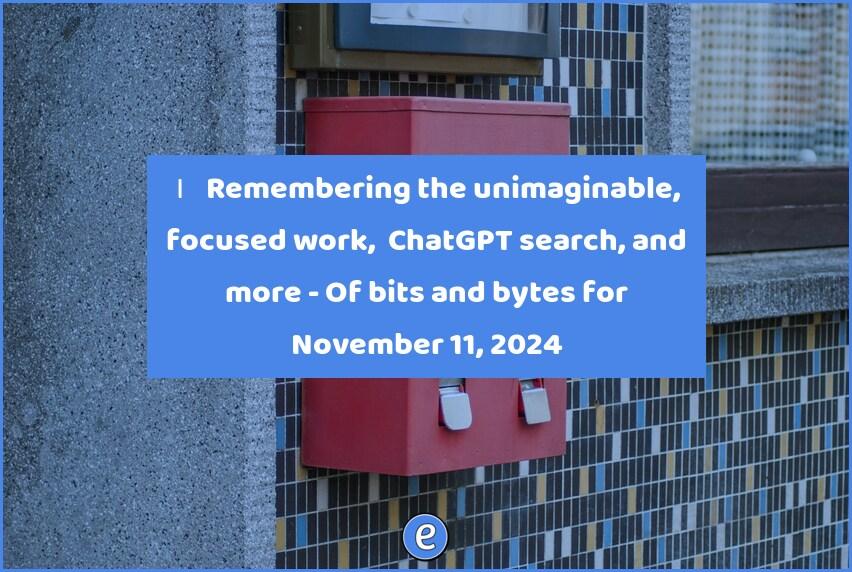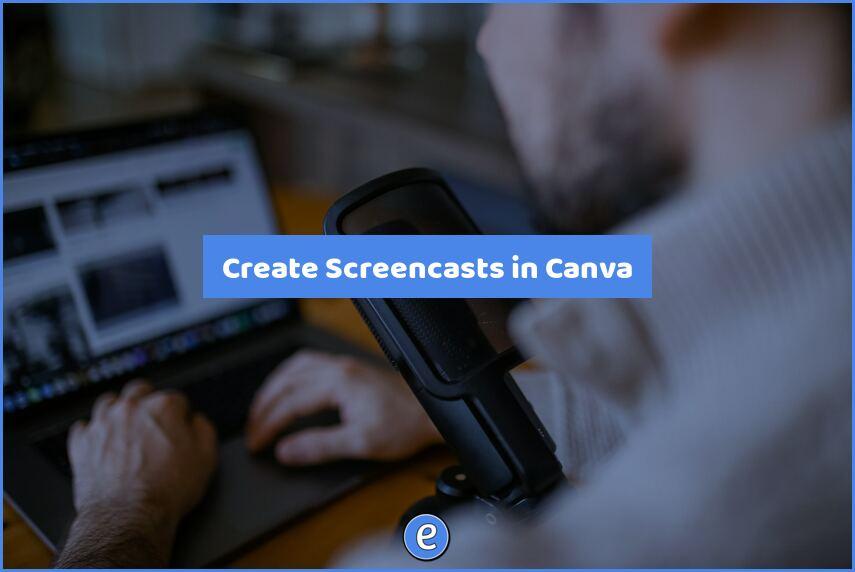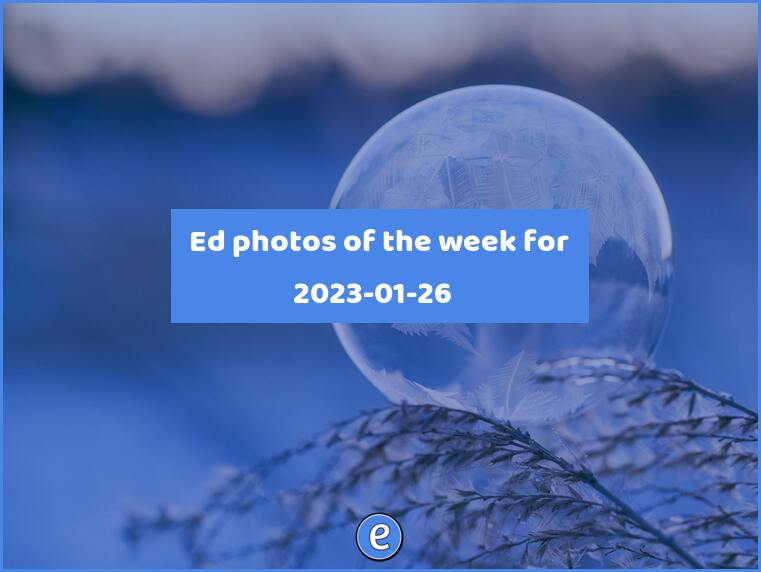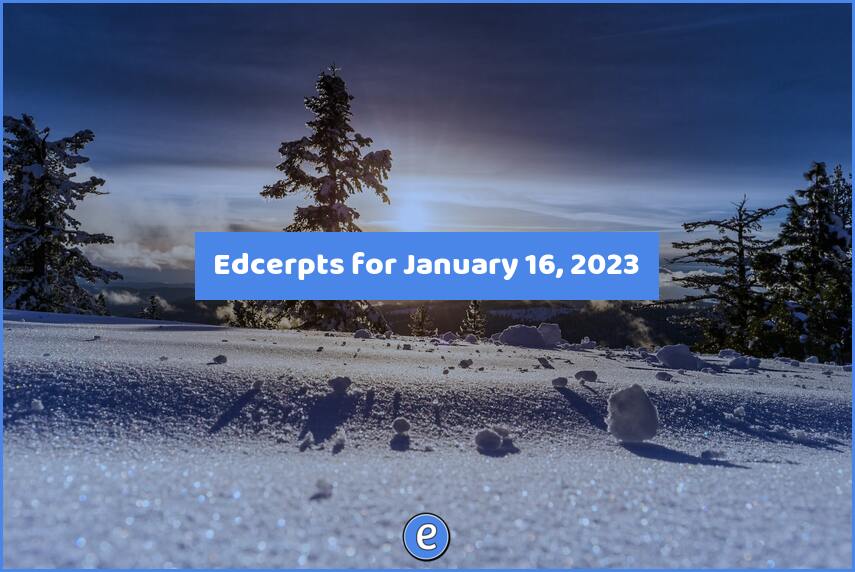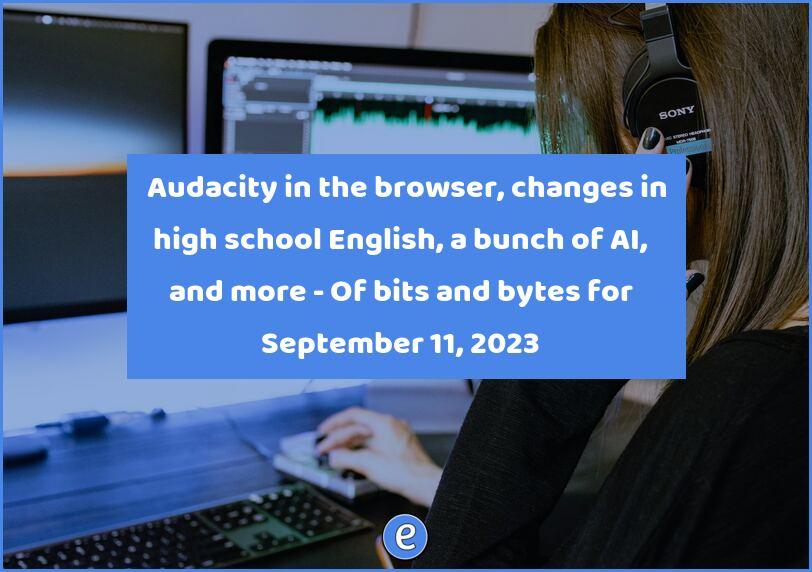🙋♂️ Remembering the unimaginable, focused work, ChatGPT search, and more – Of bits and bytes for November 11, 2024
Internet Travels
Of bits and bytes is my weekly round up of interesting links and ideas I discovered on the internet. It is published on Mondays for the previous week
Blocking Google SSO
Oh my goodness, I’m so sick of landing on a website and getting the Google Sign in box in the upper right corner.
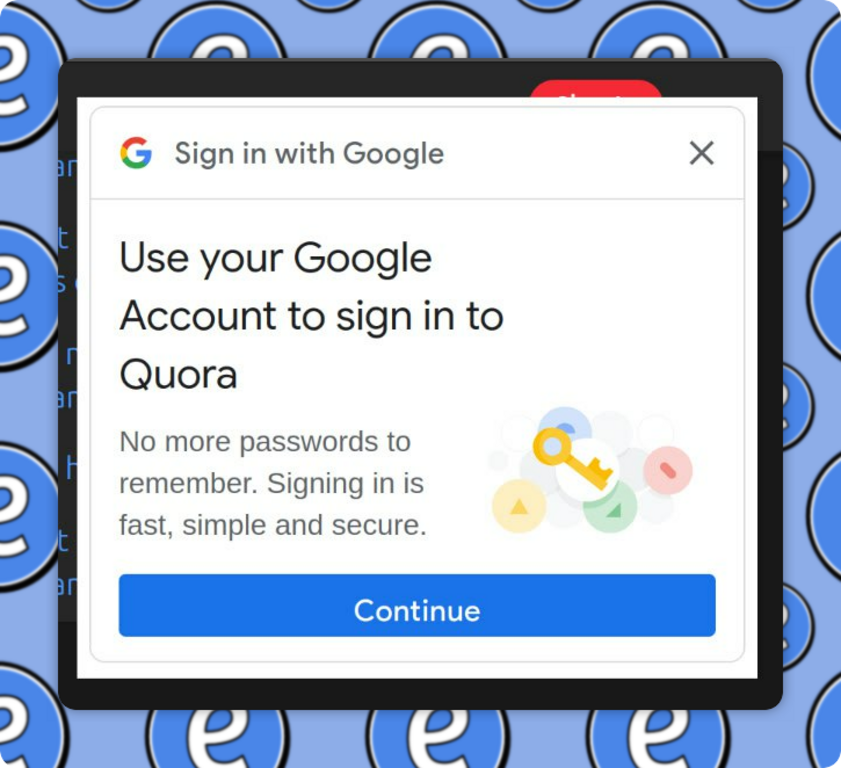
Thankfully, there is a way to turn it off. In Google Chrome. click on the 3 dots menu and select settings. On the left, select Privacy and Security and then Site Settings. Scroll down to Content, select Additional content settings and then Third-party sign-in.
Click Block sign-in prompts from identity services. Chrome will no longer show sign-in prompts through your identity service. You’ll still be able to log in with typical sign-in buttons or your username and password if you do need to sign in to a site.
Ublock Origin
If you use Ublock Origin for an ad blocker, you can add the following to My filters in the settings:
||accounts.google.com/gsi/*$xhr,script,3p
And then enjoy a more quiet browsing experience.
Learn21 is a proud sponsor of Eduk8me and the Of Bits and Bytes newsletter. Read more about their mission at Learn21.
Apps
ChromeOS 130 has just rolled out with new features for Chromebooks. One of the new features is Quick Insert, which lets you easily add emojis, GIFs, or links. There is also Focus Mode to help minimize distractions with a do-not-disturb feature. Finally we have the Welcome Recap that remembers what you were up to last time so you can dive right back into it.
Pedagogy
Toddlers have a knack for discerning the improbable from the impossible, and they are more likely to remember events they believe are unimaginable. In a study involving a gumball machine filled with toys, researchers found that if toddlers thought a machine containing no toys dispensed one, their surprise led to better recall of the toy’s name. One takeaway from the experiment was that encountering the unexpected can significantly boost learning and attention in young children.
Marina Umaschi Bers has been sparking creativity and computational thinking with innovations like ScratchJr and KIBO robotics kits. Her mission is to equip young minds with “coding playgrounds,” , encouraging free-form learning and creativity. She envisions a future where technology not only teaches but also enables more outdoor, interactive experiences, drawing kids away from screens and into environments where they can learn through play and hands-on interaction.
In an age where distractions are ubiquitous, the ability to engage in focused, sustained work has become vital for both teachers and students. John Spencer highlights the challenges educators face with a generation often distracted by devices and the allure of social media. Yet, amidst this, there are occurrences of deep, focused work — a concept famously dissected by Cal Newport — where students and educators alike can dive into complex tasks requiring full attention, unveiling creativity and problem-solving that surface only during these distraction-free periods.
To tackle this, Spencer introduces his new endeavor, “The Concentration Code,” aimed at equipping educators with strategies to foster environments conducive to deep work. Through a series of articles, Spencer plans to share methods tested in real classrooms, address the distractions epidemic using strategies that foster classroom rituals, motivation, productive struggle, and even embrace the positives of boredom. The series promises to transform the way we think about learning and distraction, turning classrooms into zones of uninterrupted creativity and focus.
Technology
It turns out that the biggest threat in cyber-security isn’t another country or a network of hackers, but rather restless teenagers. Known as “advanced persistent teenagers,” these young hackers are pulling off cyber heists, targeting corporations. These teenagers have caused data breaches and pushed companies to rethink their security strategies, focusing more on insider threats and identity verification.
In a study by University of Washington researchers, it turns out that artificial intelligence (AI) models evaluating résumés may not be as impartial as we hoped. Despite expectations of neutrality, these models showed a bias favoring white and male names over Black and female names in résumé evaluation. The study, involving comparisons of over three million résumés and job descriptions, found that white names were favored in 85.1% of cases compared to Black names, and male names were preferred in 51.9% of cases compared to female names. This trend was even stronger in intersectional cases, where Black male names were not preferred over their white counterparts at all.
OpenAI has just rolled out a new Search feature for ChatGPT, aiming to compete with giants like Google. The tool, showcased through partnerships with well-known publications like The Associated Press and Reuters, can create custom-formatted info and visual designs into categories such as weather, sports, and news. However, AI hallucinations can happen, so be wary.
Tips
Bioart and PhyloPic are sources of free images for the sciences. Bioart provides presentations and illustrations for science and medical, while PhyloPic offers free silhouette images of a wide variety of life forms—think animals, plants, and more—all available under Creative Commons licenses.
A new prompting technique uses checklists to keep AI on track and to help it finish a task. This technique guides AI to create a structured checklist for tackling questions or problems. By setting up a checklist, you not only ensure a comprehensive exploration of your query but it will also use AI to double-check its answers, increasing reliability and accuracy in its responses.
In the spirit of promoting honest use of AI, the importance of citing AI when it aids in school assignments or projects is underscored by a teacher who has crafted detailed citation guides for MLA, APA, and elementary levels. After consulting experts and various university guidelines, it became clear that AI should not be considered an “author,” emphasizing the crucial role of proper attribution. These guides were honed with feedback from district Teacher-Librarians, resulting in version 4.0.
Pop Culture
Do audiobooks count as reading? (Archive) Audiobooks are redefining what it means to be a reader. More than half of adults in the US have given audiobooks an ear and the market is booming. Despite the rise of audiobooks, print book sales aren’t taking a hit; instead, our literary consumption is evolving, with many readers embracing stories in both text and voice formats.
Potpourri
Teens are embracing the term “chat”, transforming it from simple online jargon into popular real-world slang. Originally used on platforms like Twitch and Discord, the word is now part of everyday teen vocabulary, used to address groups or individuals.
Thank you!
Major props if you’ve made it this far, you are a rockstar! Feel free to contact me with questions, ideas, concerns, or your thoughts on the next Marvel movie. In fact, I love to discuss about any topic and then wonder how it intersects with education, so fire away!
“Yesterday is history, Tomorrow is a mystery, but Today is a gift. That is why it is called the present.” – Oogway, Kung Fu Panda

By design, the vast majority of Of Bits and Bytes readers never pay anything for the links, commentary, and tips it provides. But you made it all the way to the end of this week’s edition — maybe not for the first time. Want to support more journalism like what you read today? If so, click here.
Be sure to subscribe to my YouTube channel and join your fellow educators on the Eduk8me email list!
